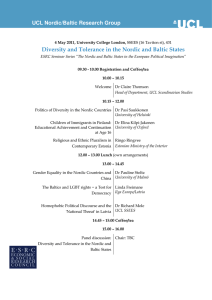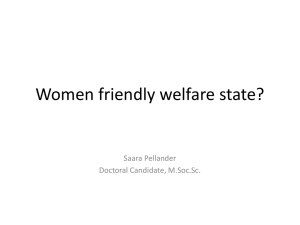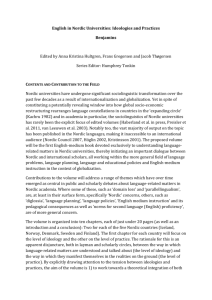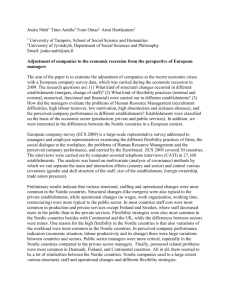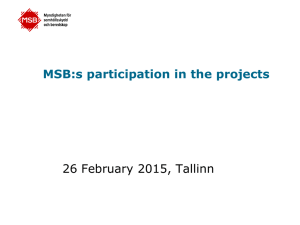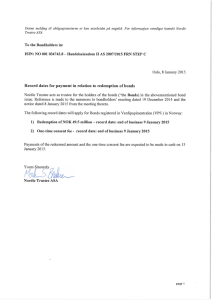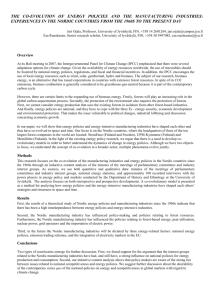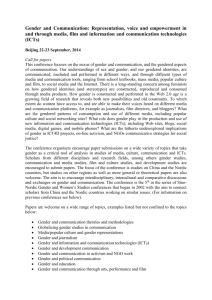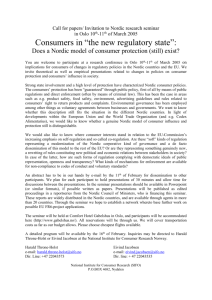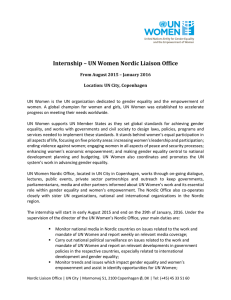Common Nordic identity for school principals /code of practice for
advertisement
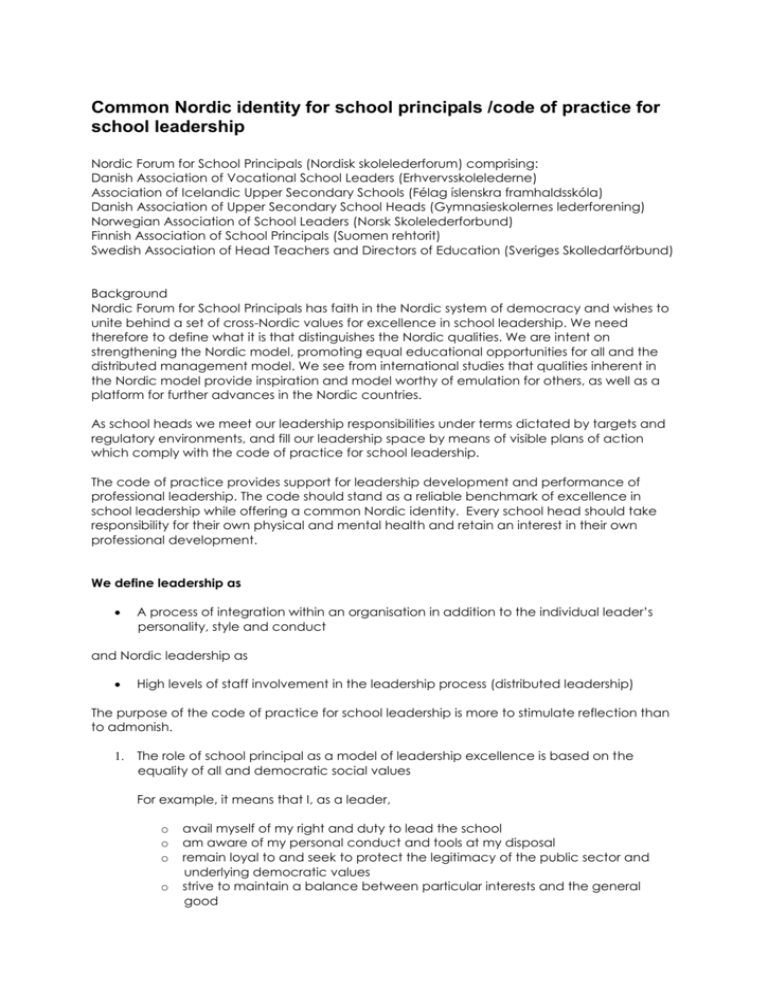
Common Nordic identity for school principals /code of practice for school leadership Nordic Forum for School Principals (Nordisk skolelederforum) comprising: Danish Association of Vocational School Leaders (Erhvervsskolelederne) Association of Icelandic Upper Secondary Schools (Félag íslenskra framhaldsskóla) Danish Association of Upper Secondary School Heads (Gymnasieskolernes lederforening) Norwegian Association of School Leaders (Norsk Skolelederforbund) Finnish Association of School Principals (Suomen rehtorit) Swedish Association of Head Teachers and Directors of Education (Sveriges Skolledarförbund) Background Nordic Forum for School Principals has faith in the Nordic system of democracy and wishes to unite behind a set of cross-Nordic values for excellence in school leadership. We need therefore to define what it is that distinguishes the Nordic qualities. We are intent on strengthening the Nordic model, promoting equal educational opportunities for all and the distributed management model. We see from international studies that qualities inherent in the Nordic model provide inspiration and model worthy of emulation for others, as well as a platform for further advances in the Nordic countries. As school heads we meet our leadership responsibilities under terms dictated by targets and regulatory environments, and fill our leadership space by means of visible plans of action which comply with the code of practice for school leadership. The code of practice provides support for leadership development and performance of professional leadership. The code should stand as a reliable benchmark of excellence in school leadership while offering a common Nordic identity. Every school head should take responsibility for their own physical and mental health and retain an interest in their own professional development. We define leadership as A process of integration within an organisation in addition to the individual leader’s personality, style and conduct and Nordic leadership as High levels of staff involvement in the leadership process (distributed leadership) The purpose of the code of practice for school leadership is more to stimulate reflection than to admonish. 1. The role of school principal as a model of leadership excellence is based on the equality of all and democratic social values For example, it means that I, as a leader, o o o o avail myself of my right and duty to lead the school am aware of my personal conduct and tools at my disposal remain loyal to and seek to protect the legitimacy of the public sector and underlying democratic values strive to maintain a balance between particular interests and the general good 2. The school head encourages systematic reflection over one’s own and one’s colleagues’ norms and values For example, it means that I, as a leader, o o o o provide the necessary conditions for professional dialogue and the sharing of knowledge and experience use/apply documentation and evaluations of school results seek to balance short-term, immediate concerns against measureable, longterm effects of school activities maintain a focus on values, directions, targets and results, give values visibility, incorporate them in school practice and communicate them to the wider world 3. The principal sets an ethical standard by assuming a form of leadership which encourages respect and appreciation For example, it means that I, as a leader, o o o am aware of my qualifications as a leader draw a line between my private, personal and professional life am authentic and defend the mentality and values on which legislation is built 4. The principal works to achieve optimal capacity for growth and development among pupils For example, it means that I, as a leader, o do what I can to encourage each pupil to grow in line with his or her individual capabilities 5. The principal works to ensure sound decision making on the basis of an impartial review and in line with procedures within the organisation For example, it means that I, as a leader, o o o o have regular meetings with staff members in relevant fora review and assess issues prior to making a decision adhere to agreed ground rules keep staff up to date on decision making 6. The principal respects the integrity of each individual For example, it means that I, as a leader, o o Respect and take into account the ethnicity, religion, physical and mental health, sexual preferences, sex/gender, age and political convictions of each individual Adhere to the principle of confidentiality 7. The principal works to encourage a good working and learning climate, along with competence building opportunities for all members of the organisation For example, it means that I, as leader, o o o Work to establish a learning organisation Encourage dialogue and participation of all members of the organisation Allow for difference between people 8. In his or her undertakings, the head will adopt principles of sustainability and global awareness, while following developments and keeping abreast of scientific findings For example, it means that I as leader o o o Will work to promote awareness of sustainable development among staff and pupils Seek to balance short-term, immediate concerns against measureable, longterm effects of the school’s activities Let national and global society which the pupils will meet inform the school’s approach to learning and educational practices The code of practice for school leadership is divided into three parts. Part 1 reviews the background to and reasons for formulating the code and general points which together comprise our perception of the necessary elements that go to make up such a code. Part 2 reviews each point individually with examples of issues to consider under each point. Part 3 is meant to encourage individual leaders to reflect over values and practice.
